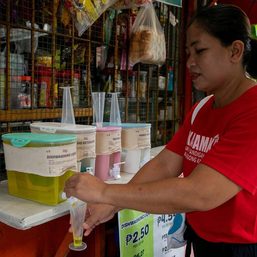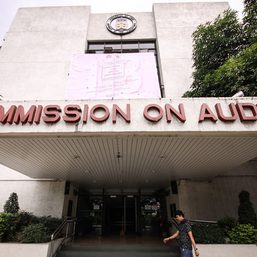SUMMARY
This is AI generated summarization, which may have errors. For context, always refer to the full article.
MANILA, Philippines – Saying that it could “undermine” the integrity of the Supreme Court, Chief Justice Renato Corona asked the Commission on Audit (COA) in 2010 not to post 2009 audit reports on the High Tribunal and the Presidential Electoral Tribunal on the COA website.
In December 2011, COA said no to Corona.
It was on Dec. 6, 2010 when Corona wrote the COA and requested that the SC be exempted from the agency’s publication requirement of its audit report, saying this might be used against the High Court, which by then was handling “high-profile” cases.
Upon the request of the COA general counsel, SC Court Administrator Jose Midas Marquez elaborated on the justifications for this request.
In a letter dated Aug. 5, 2011, Marquez cited COA resolution no. 84-40 issued in 1984, which said that the release of the audit report is restricted.
Marquez added that losing litigants also used the audit reports to “threaten justices with retaliatory actions,” and that the public’s comments on it could affect the impartiality of the SC and the PET.
This is also the same justification used by the Justices when they ruled, in 1989, against publicly disclosing their Statements of Assets, Liabilities, and Net Worth.
The PET, which decides electoral protests involving the posts of the president and vice president, is composed of 14 SC magistrates, with the Chief Justice sitting as ex-oficio chairman.
COA however said that these reasons are not enough to warrant the non-publication of its audit reports on the SC and PET on the COA website.
Right to know
In its response dated Dec. 29, 2011, COA said posting these audit reports is part of upholding the public’s right to access of information.
“It should be reiterated that the non-publication or partial publication of the AARs, if not sufficiently justified, is a negation of the right of the people to information on matters of public concern guaranteed no less by the 1987 Constitution,” COA said in a letter signed by COA chairperson Grace Tan and commissioners Juanito Espino Jr. and Heidi Mendoza.
“The complete AARs should be made available to the public. Limiting their access to Part I, which contains only the audited financial statements, is a negation of this right. Part II, the audit observations and recommendations, is the meat and substance of the report,” it added.
The COA also cited jurisprudence or previous SC rulings, which stated that the regulation of access to information covers only the manner and hours of examining the documents – to prevent the reports from being damaged or lost.
COA added that it could not see the relevance of the audit observations in relation to supposed high-profile cases pending before the SC.
The agency enumerated these audit observations:
- Unremitted balances of trust receipts, misstated consolidated book balances of the Cash in Bank account of the General Fund, Judiciary Development Fund (JDF) and Special Allowance;
- Carry-over of negative balance of the Due from Officers and Employees account;
- Allocation of the JDF to finance the interest-tree loan under the SC-Motorcycle;
- Computer and Handgun Acquisition Program against 20% share of the JDF, instead of against 80% allocation;
- Weak/inadequate internal control on collection and monitoring of payments/settlements;
- Failure to conduct physical inventory, among others
What the SC should do is to answer criticisms in the proper forum or “observe proper accounting principles.” – Rappler.com
Add a comment
How does this make you feel?













There are no comments yet. Add your comment to start the conversation.